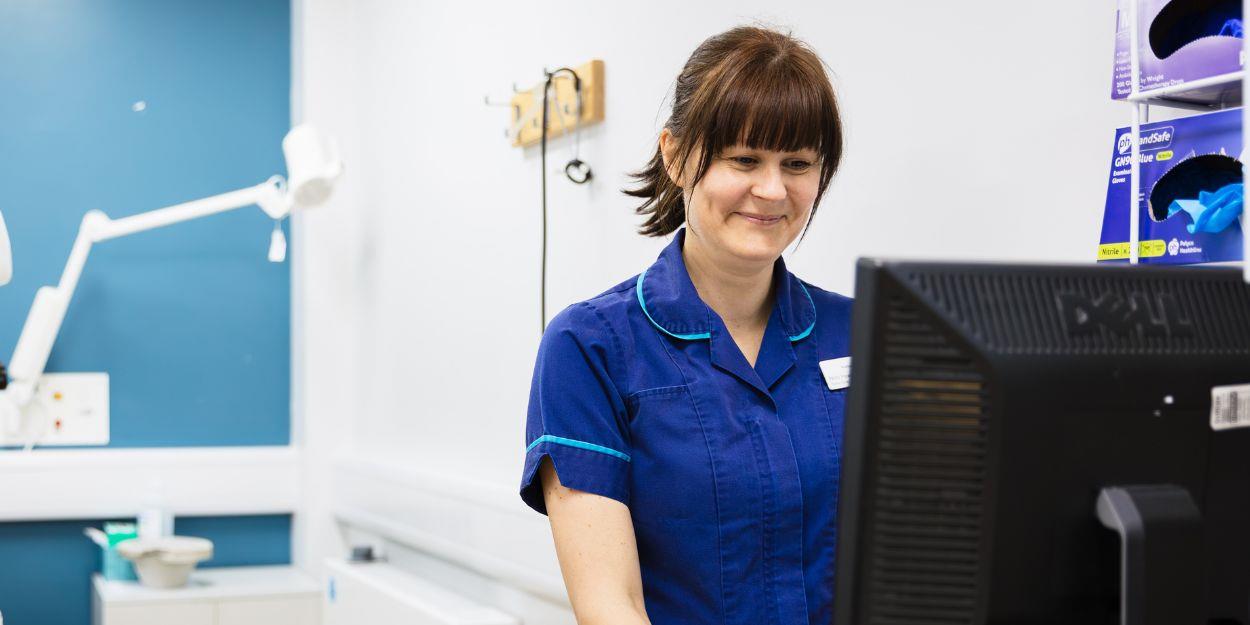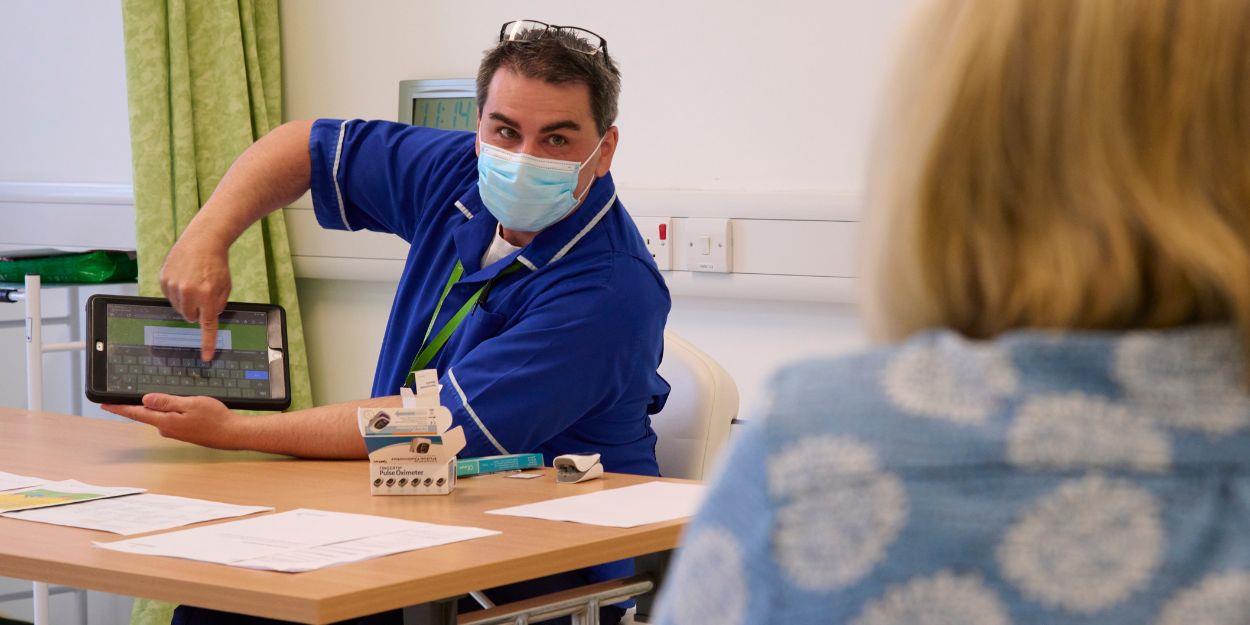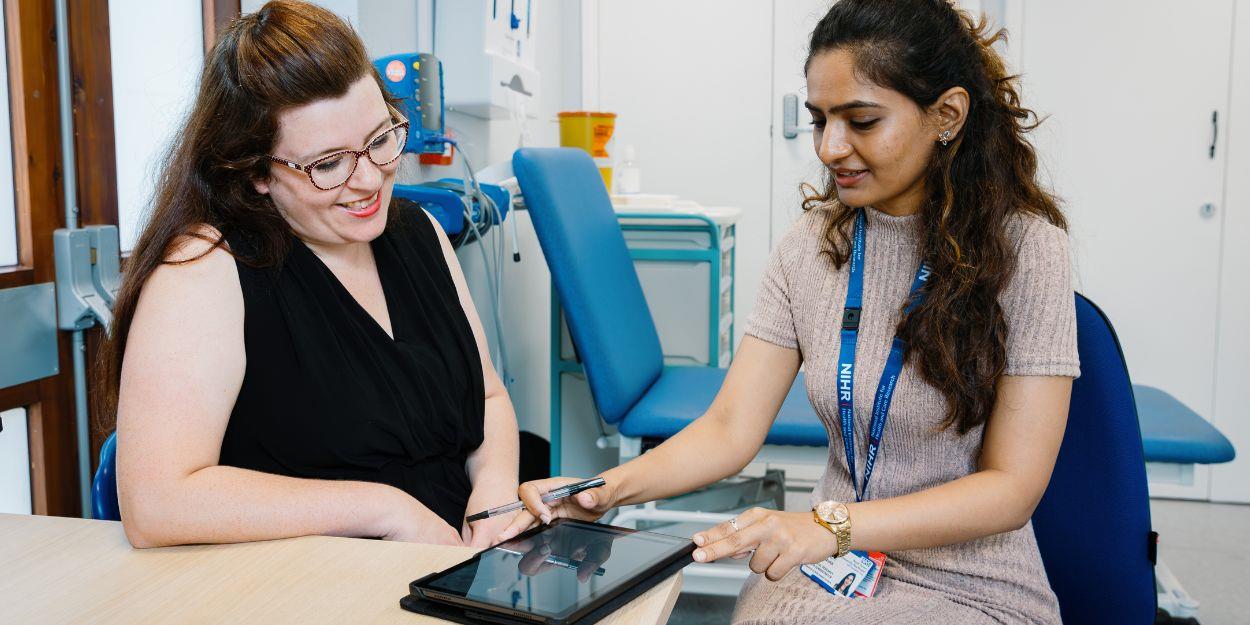
Securing accreditation from the PPD clinical research business of Thermo Fisher Scientific for decentralised trial delivery has cemented the Patient Recruitment Centres’ position as a collective of expertise in remote and hybrid trial design and delivery. But do you know why 5 Patient Recruitment Centres are better than 1 when delivering a decentralised clinical trial?
Published: 10 April 2024
The evolution of decentralised trials
Decentralised delivery of clinical trials came into its own during the COVID-19 lockdowns. Prior to the pandemic, opinion was mixed on whether or not virtual trials would revolutionise research delivery and on how far decentralised delivery models would permeate the research landscape. However, many research teams that would have continued with site-based approaches were forced to rethink their recruitment strategy and rapidly adapt their delivery models.
One such success story was the RELIEVE IBS-D trial which ran at NIHR Patient Recruitment Centre: Newcastle (PRC: Newcastle). The trial was the first interventional commercial trial in the UK to be converted into a fully virtual trial – also known as a decentralised clinical trial (DCT). The trial represented a major step forward in demonstrating the UK’s capacity and capability to deliver decentralised trials.
Driving decentralised trial delivery
PRC: Newcastle has continued to champion the delivery of decentralised trials and has led the charge on upskilling all five PRCs to improve their capability in this space. One of the ways it has achieved this is by spearheading the PRC’s collective achievement of a decentralised trial delivery accreditation provided by the PPD clinical research business of Thermo Fisher Scientific.
Steven Burke, Director, Site Collaborations/Patient Solutions with the global contract research organisation has been involved in the implementation of the DCT accreditation plan including the roll-out of training to sites in the UK. He shares his insight into why the time was right to develop the accreditation programme.
“The clinical research environment has changed following the COVID-19 pandemic, and the evolution of clinical research delivery continues at pace,” he explains. “Sponsors are increasingly deploying decentralised trial delivery innovations, with 89% using elements in their trials. We anticipate that a hybrid DCT model will be the norm going forward.”
The PPD clinical research business recognised the value of having a site accreditation plan when pitching to those sponsor companies that were bringing studies to the UK. Being able to demonstrate that there are sites that can hit the ground running when delivering a decentralised trial is a huge attraction for study sponsors. Steven Burke continues:
“The DCT network accreditation was designed to empower sites on their DCT journey, we created the training with sites, for sites. We wanted to expand the understanding and value of DCTs. The comprehensive training outlines what DCTs are, the investigative responsibilities and what staff need to think about when delivering decentralised studies.”
Why decentralised delivery?
Steven Burke says the PPD clinical research business is keen to convey the wider benefits of decentralised trial delivery. “They are designed to support patient access, recruitment and retention, with research fitting into the lives of the participant. They can shorten overall study timelines by requiring fewer sites, reducing costs, and facilitating faster recruitment. But most importantly, they accelerate the delivery of new treatments for patients.”
Professor Yan Yiannakou, Chief Investigator of the UK’s first fully virtual trial and Clinical Director of NIHR Patient Recruitment Centre: Newcastle, in the north east, agrees and cites further benefits:
“A key driver for delivering decentralised or hybrid trials is how they can improve convenience and save time for participants. They can break down geographical boundaries and, reduce in-person appointments which can help boost participation and retention.
“There also might be cost reductions for sponsors if they don’t have to open as many sites and possibly a reduction in the carbon footprint of clinical trials.
“Additionally, they may provide more real-world evidence, as often recruiting from hospital clinics focuses on the most severe cases of a condition or illness, as opposed to the everyday lived experience or those who are able to manage their condition in the real world.”

Understanding challenges and embracing new approaches
To conduct decentralised trials well, it is important to understand the challenges and complexities and ensure sites are fully equipped for this shift in delivery. Professor Yan Yiannakou reflects on his experience and learning to date:
“Without expertise in running DCTs you can often feel lost. The PRCs understand the reasons behind DCTs which is often the first hurdle when it comes to delivery. This new training has been integral and has certainly further empowered my staff to decentralise aspects of trial delivery with confidence.”
“Without that confidence, there can be a tendency to be overly conservative when implementing new methods. When researchers are designing decentralised trials, it is important that we do not raise the burden of the trial more than you would in a site-dependent trial.
“For example, we have proven it is possible to break geographical boundaries and recruit participants faster. But you must find the means in which to do so. In my experience, social media has been instrumental in increasing our recruitment reach beyond our locality. But this must be done in a professional manner and with an adequate budget.”
Yan Yiannakou believes that, as well as site teams are being prepared to embrace new approaches, it is equally important to understand what skill sets exist within the research team and which expertise may need to be sought.
A different perspective - engaging the right expertise
Sophie Devine is the Lead Research Nurse at PRC: Leicester, in the Midlands, and has completed the training provided by the PPD clinical research business.
“The training, and our experience to date, has made us look at protocols through a different lens,” she explains. “For instance, we have seen the benefit of trusting third party vendors - by this we mean specialist agencies that we contract with to aid specific aspects of delivery, such as social media campaigns or remote delivery.
“We have experience in overcoming the associated governance challenges and legalities in using such approaches in trial delivery, which enable us to streamline our set-up.
“Each time we conduct a hybrid trial we are building on those foundations to improve the information and experience for both patients and sponsors.”
Prioritising the participant experience
As Sophie suggests, decentralising aspects of trial delivery can also have a positive impact on the participants' experience of taking part in a study or trial. Yan comments:
“Systems and processes at sites are integral to enable patients to be in control of their research journey and ensure the site is aware of where they are in the research pathway.”
Decisions about which tools and technologies are used to keep participants connected to the research team need serious consideration. Sophie Devine adds:
“We always consider the target patient population when planning the delivery of studies. We need to be mindful that older generations may not have smartphones, email addresses or the technological understanding to use the required systems. We want to make sure we do not alienate them. In some cases we need to look at how we can potentially adopt a more hybrid model. This may involve a blend of site visits for some activities and remote monitoring for other aspects.”
Five PRCs, multiple benefits
While the growth of fully virtual trials like RELIEVE IBS-D has slowed, demand for the ability to decentralise elements of trial delivery continues to grow. Consequently, the need to upskill staff, enhance systems and processes, and empower patients is more important than ever.
By achieving this new accreditation, the PRCs are firmly at the forefront of decentralised delivery in the UK. Yan explains why having all five PRCs accredited presents additional benefits:
“You could just have 1 site leading a decentralised trial, like we did with RELIEVE IBS-D. However, in practice, I think it is best to have a number of sites delivering the study.
“This is especially important for large scale trials due to the sheer number of patient interactions that need to take place. Plus, if you only have one lead site, and there was a crisis in that unit, there is a single point of failure. Having all 5 PRCs as sites would negate that risk.
“The geographical spread of the PRCs also lends itself to the approach of a multi-site DCT, where there might be a high throughput of participants and the resources of many sites are needed to action patient interactions and follow-up.
“Also, consider that the PRCs were set up with innovation in mind. Having 5 sites aware of all the benefits and challenges, such as governance, in this trial delivery method will help to streamline decentralised study set-up and delivery.”
Paving the way for the future of decentralised trials
With accreditation from the PPD clinical research business under their belt and delivery experience rapidly expanding, the PRCs are in a great position to spearhead the UK’s decentralised trial delivery offer to the life science industry. Steven Burke reflects:
“The UK is well placed to offer decentralised elements. With a single healthcare provider in the NHS this offers unique opportunities for accessing data and identifying cohorts of participants.
“We hope to see the PRCs utilising a wide range of decentralised elements adopted in trial delivery in the future. Positioned as significant regional hubs with expansive recruitment areas, the PRCs are primed to excel in DCT implementation.”
Also looking to the future, Sophie Devine adds:
“I am excited about the future possibilities of DCTs. They have the potential to broaden our research portfolio - by delivering more studies concurrently, reach more diverse patient populations, and may help chip away at the stigma research still has in certain communities.”
Yan Yiannakou concludes:
“The PRCs have been working collaboratively for five years and we are excited to do more in this space.”
________________________________________________________________________________________
The NIHR funds 5 Patient Recruitment Centres (PRCs) - research facilities that are dedicated to making it easier and quicker to deliver late-phase (2b, 3 and 4) and large-scale commercial clinical research in the NHS and wider health and care environment.
Speed, efficiency, patient experience, innovation and continuous improvement are the key drivers of these five purpose-built centres that exclusively deliver commercial research at pace and scale.
Related information
- Read a related case study: Pushing virtual boundaries to improve patient engagement and accessibility
- Find out more about the Patient Recruitment Centres


